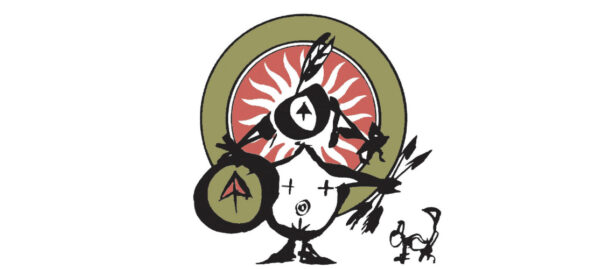
- Details
- By Native News Online Staff
LONDON, U.K — The founder of an independent record label based in London credited an “eye-opening” fan letter for helping him realize the racist nature of the company’s name and logo.
One Little Indian Records founder Derek Birkett announced on Instagram last week that, effective immediately, the company planned to cease use of the hateful name and is in the process of rebranding the 35-year-old label as One Little Independent Records.
Citing “the monumental learning curve” over the last few weeks of racial unrest across the U.S., Birkett said in a statement posted on Instagram that he became “appalled” over the company’s name, for which he “unreservedly” apologizes.
A fan of the band Crass, which is signed to the label, reached out to Birkett via a letter that “detailed precisely why the logo and label name are offensive, as well as the violent history of the terminology.”
The label is home to artists including Björk, Skunk Ananise, Sneaker Pimps and Alabama 3, and has issued albums by the likes of Chumbawamba and The Fireman, an experimental duo featuring Paul McCartney and Youth, the stage name for producer Martin Glover.
“I recognise now that both contribute to racism and should have been addressed a long, long time ago,” he said, noting the name and logo “should have been addressed a long, long time ago.”
Birkett is the former bassist of Flux Of Pink Indians, a Hertfordshire, England-based anarcho-punk band.
“As a teenager living in London in the late 1970s, my friends and I were deeply inspired when we learned about some of the philosophies of the Indigenous People of the Americas, of peace and love for each other and for nature and the planet, and in turn they were of huge influence in our anarchist punk movement,” Birkett said in a statement. “I was naive enough at the time of founding my label to think that the name and logo was reflective of my respect and appreciation of the culture.
“I’m aware that my white privilege has sheltered me and fostered my ignorance on these issues. I realise now that the label name and logo instead perpetuated a harmful stereotyping and exploitation of Indigenous Peoples’ culture. This is the exact opposite of what was intended. However, I know that it is not the intentions but the impact that is important.”
As part of the renaming process, Birkett said he has made donations to groups including the Honouring Indigenous Peoples Charitable Corporation and The Association on American Indian Affairs, which he will continue going forward.
More Stories Like This
American Basketball Association Announces Native ABA InitiativeFour Winds South Bend Upgrades to Class III Gaming Casino
Native News Online Wins Two Awards from Native American Journalists Association
Wahlberg Brothers Are a Big Hit at Indian Gaming Tradeshow and Convention in Las Vegas
Native Gro Offers Tribes a ‘One-Stop Shop’ for Entering the Cannabis Industry
Help us defend tribal sovereignty.
At Native News Online, our mission is rooted in telling the stories that strengthen sovereignty and uplift Indigenous voices — not just at year’s end, but every single day.
Because of your generosity last year, we were able to keep our reporters on the ground in tribal communities, at national gatherings and in the halls of Congress — covering the issues that matter most to Indian Country: sovereignty, culture, education, health and economic opportunity.
That support sustained us through a tough year in 2025. Now, as we look to the year ahead, we need your help right now to ensure warrior journalism remains strong — reporting that defends tribal sovereignty, amplifies Native truth, and holds power accountable.
 The stakes couldn't be higher. Your support keeps Native voices heard, Native stories told and Native sovereignty defended.
The stakes couldn't be higher. Your support keeps Native voices heard, Native stories told and Native sovereignty defended.
Stand with Warrior Journalism today.
Levi Rickert (Potawatomi), Editor & Publisher

